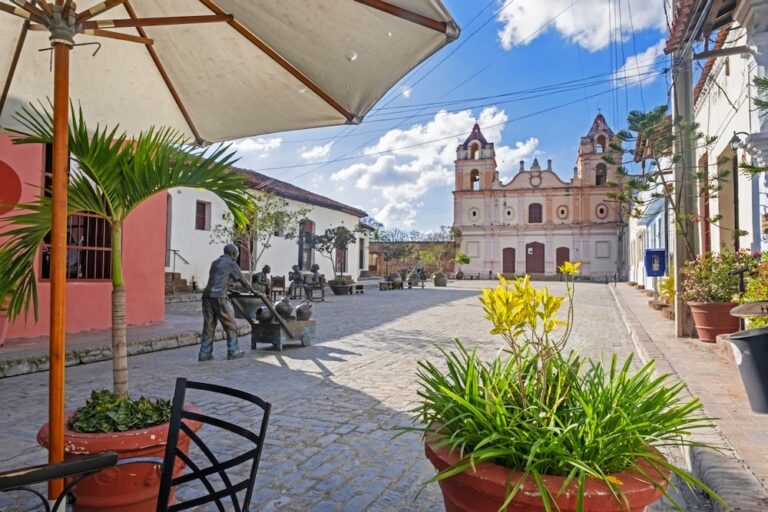With the detention of Yosvani Anzardo Hernández, Cuba now has a total of 26 journalists in prison.
(RSF/IFEX) – Two bloggers, Luis Felipe González Rojas and Yosvani Anzardo Hernández, were arrested and beaten by police in the eastern city of Holguín on 10 September 2009 and their computers were confiscated. González was released after four hours while Anzardo is still being held. His detention brings the number of detained journalists in Cuba to 26.
The interview González recently gave to Miami-based Radio Marti was the probable reason for his arrest. He also keeps a blog called Animal de Ancatarilla ( http://www.cubaencuentro.com ).
Anzardo is the editor of “Candonga” ( http://www.candonga.org ), an online newspaper for Cubans within the country that is currently inaccessible. He has also been reporting for the Miami-based website Payo Libre for more than three years. Payo Libre editor Pablo Rodriguez Carvajal said Anzardo has not been able to communicate with his family since his arrest.
“The authorities are going out of their way to stifle any online expression of the civil society that is emerging in Cuba,” Reporters Without Borders said. “This censorship reflects the government’s refusal to accept the current and future changes on the island, which are escaping its control.”
The press freedom organisation added: “It is high time that the foreign embassies in Havana remind the Cuban government of the obligations that result from its having signed the UN’s International Covenant on Civil and Political Rights in February 2008.”
The website of Voces Cubanas ( http://vocescubanas.com ), a platform that supports independent Cuban bloggers, has meanwhile been inaccessible within Cuba since 28 August. The same goes for the Payo Libre website since 10 September. The blog of Lia Villares ( http://www.habanemia.blogspot.com ) is also blocked, as is Yoani Sánchez’s blog, Generación Y ( http://www.desdecuba.com/generaciony ).
The Cuban government often blocks websites dedicated to daily life on the island, only to restore access after a relatively short period. This repeated censorship tactic is a way of discouraging alternative sources of news and information while misleading the foreign media, which are not well represented on the island and are closely monitored by the authorities.
As Iván García Quintero says in his blog Penúltimas Días, getting access to the Internet is a Kafkaesque obstacle course for bloggers and everyone else in Cuba, which has one of the lowest rates of Internet access in the western hemisphere. According to official sources, 13 per cent of the population is online but in practice the rate is probably lower.
A public Internet connection costs six dollars an hour in a country in which the average monthly salary is the equivalent of 20 dollars, while very few Cubans have private access to the Internet. Aside from the fact that all private connections must be approved by the only Internet Service Provider, the state-owned ETECSA, computer equipment is prohibitively expensive because retail prices are the same as in western countries while, in general, the population’s purchasing power is 100 times smaller.
Furthermore, connections are extremely slow, so slow that bloggers say they cannot always read what they themselves have posted online.
The Dutch embassy and the US Interests Section offer free Internet access of much better quality to the public, but several hours of waiting is often necessary in order to use it. After Raúl Castro took over as president, the government lifted a ban on Cubans entering tourist hotels, which have better connections. But supervision has been reinforced again and several bloggers, such as Yoani Sánchez, have been turned away when they tried to enter hotels (see video : http://www.youtube.com/watch?v=0LpSCqfKPeA ).
Finally, several sources say that the University of Computer Sciences is helping to monitor and censor the Internet in Cuba.
With 26 journalists detained, Cuba currently ranks alongside Iran as the world’s third biggest prison for journalists, following Eritrea and China. The imprisoned journalists include Reporters Without Borders correspondent Ricardo González Alfonso, who has been held since March 2003.
The western hemisphere’s last dictatorship was ranked 169th out of 173 countries in the 2008 Reporters Without Borders press freedom index.


